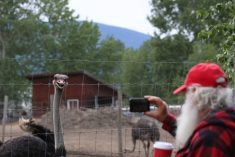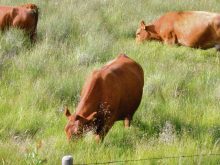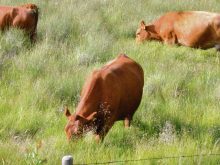While the U.S. has declared itself free of high-path avian flu, Canada is still warning cross-border travellers not to bring in poultry or eggs from seven previously affected states.
The Canada Border Services Agency (CBSA) on Thursday — a.k.a. Thanksgiving Day in the U.S. — rolled out a statement to remind travellers that Canada’s restrictions remain in place on uncooked poultry products, live birds and eggs from Minnesota, North Dakota, Iowa, Kansas, Missouri, Nebraska and South Dakota.
“Shoppers who buy poultry or eggs in the U.S. should make sure the packaging indicates the product comes from a state other than an avian influenza-affected state,” the CBSA said.
Read Also

USDA defends $12 billion subsidy amid farm economy challenges
As the U.S. Department of Agriculture prepares to dole out $12 billion (C$16.4 billion) in government subsidies next week, officials and economists at the agency’s annual forum near Washington defended the assistance as a necessary measure to prevent more farmers from financial ruin.
If a product’s state of origin is unclear, CBSA added, that product “may be prohibited from entry.”
For cross-border travellers, the list of restricted items from those states includes live birds, hatching eggs, eggs, yolks, egg whites, uncooked or partially-cooked poultry meat, feathers, poultry manure/litter and laboratory materials containing poultry products or byproducts.
Live pet birds will be allowed if they arrive with the appropriate certification from the U.S. Department of Agriculture (USDA).
Commercial poultry and egg imports are restricted from “specific quarantine zones” in the seven affected states until further notice, according to the Canadian Food Inspection Agency.
No new detections of highly pathogenic (“high-path”) avian flu (HPAI) have been made anywhere in the U.S. since June 17, including in any of the 15 states where strains of the virus had been reported since Dec. 19 last year. Wild bird surveillance has turned up no new cases in the past three months, USDA said in mid-November.
Avian flu had been detected in birds at 219 properties across those 15 states, leading to destruction for over 48 million infected and/or exposed birds — including over 31 million and almost nine million in Iowa and Minnesota respectively.
Having met all the requirements laid out by the World Organization for Animal Health (OIE), the U.S. “has completely fulfilled the necessary actions and surveillance requirements to again self-declare itself free from HPAI,” Dr. John Clifford, deputy administrator for USDA’s Animal and Plant Health Inspection Service (APHIS), wrote Nov. 18 in the agency’s final report to the OIE on the outbreak.
“Each outbreak has been closed after the requested three-month period of stamping out, disinfection and surveillance,” Clifford wrote, and “the HPAI event in the U.S. is considered closed.”
As a precaution, he added, “additional enhanced surveillance and procedures may continue” in affected states.
CFIA, in its latest statement on Canada’s restrictions, emphasized there’s “no food safety risk” with the affected U.S. products and the border measures are still in place only “to prevent the introduction of avian influenza into other parts of Canada.”
The CFIA in early October informed the OIE Canada had declared itself free of HPAI, following outbreaks at 13 properties in British Columbia last December and in February, and at three farms in southwestern Ontario in April. — AGCanada.com Network


















